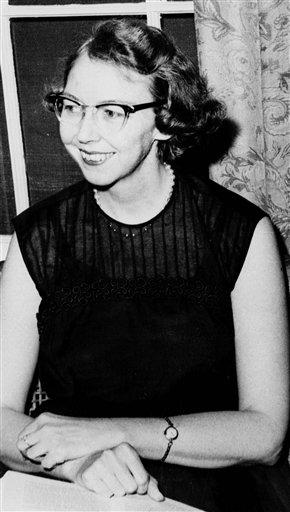By RICKY BORDELON
ASSISTANT OPINIONS EDITOR

“The truth does not change according to our ability to stomach it,” Flannery O’Connor, one of the best authors of the Southern Gothic movement, said.
Once, during my sophomore year of high school in the middle of January, just after we returned from the respite of the Christmas holidays, my English teacher announced that we would begin reading a couple of stories and novels from Southern authors, one of whom was the great Flannery O’Connor. We were told she was the author of such works as Wise Blood, The Violent Bear It Away, “A Good Man is Hard to Find,” and the short stories “Everything that Rises Must Converge.”
I was instantly intrigued with O’Connor’s work because she combines some of the greatest issues that people face in their lives, such as violence, relationships, racial tensions and religion, and morphs them into enthralling tales that force the reader to face the situation and question his or her life along with the content of the story.
One of the first of her stories that I read was “Good Country People,” which is part of the set of short story collection,A Good Man is Hard to Find.
“Good Country People” tells the story of the Hopewell family and a Bible salesman named Manley Pointer. Eventually Hulga, the daughter of the family, begins to question her relationship with her mother and with Pointer, leading to an interesting climax.
One of the most interesting aspects of O’Connor’s writing is that each story does not lead to a nicely designed ending, complete with a fitting moral.
“A Good Country People” urges its readers to question how much one can trust appearances and relationships and the role that grace plays in a person’s life.
The stories, using much dramatic irony, usually lead the reader to these greater questions that are not necessarily answerable. Instead, they allow the reader to identify with the story and its themes.
O’Connor’s subject is the human experience, which adds richness and variety to her writing, especially with the characters she creates, who each have dynamic personalities.
My favorite story of hers is “A Good Man is Hard to Find.” In this story, she again writes about family relationships but further explores what it means to be a truly religious person while facing extreme violence. The ending is quite suspenseful and combines the best in writing with fascinating themes.
Her short stories make excellent reads, even at times when it seems that assignments for class never end. She paints a dark, interesting picture of the Southern United States during a turbulent time (1950s-60s) before and during the Civil Rights movement, using vivid characters and language.
Because O’Connor herself was a Catholic, religion plays a key role in most of her stories and adds an additional otherworldly dimension to them.
Although O’Connor sadly died young at 39, her literary legacy lives on today. Her writing paints an accurate picture of Southern life and, with innovative storytelling, pushes the reader to confront social, political and personal issues while reading truly compelling literature.





































































































































































































